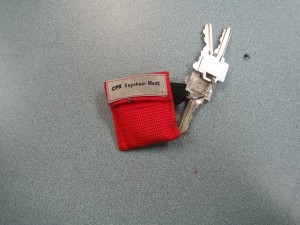Seattle CPR ranks at the top of the list in CPR training providers. We offer the largest available selection of training programs for the most affordable rates in Washington. You won’t find another training center in the city that has better quality training and cheaper rates than us. If you need CPR certification for basic or advanced CPR training, then you’ve come to the right place. Seattle CPR will have everything you could possibly need.
Our CPR Training Courses

We offer students a choice of Basic Life Support or Advanced Life Support training. We have three Basic Life Support training programs, one of them with an accompanying re-certification class, and two Advanced Life Support training program, both with re-certification available. Our programs range from as short as four hours to sixteen hours, with re-certification running much shorter, from four hours to eight hours.
- Basic CPR and AED (BLS) – 4 hours
- Basic CPR and AED for HCPs (BLS) – 4.5 hours
- Basic Life Support for HCPs – 4.5 hours (re-certification: 4 hours)
- Advanced Cardiac Life Support (ALS) – 16 hours in 2 days (re-certification: 5 to 6 hours)
- Pediatric Advanced Life Support (ALS) – 14 hours in 2 days (re-certification: 6 to 8 hours)
Basic Life Support programs are focused on teaching the basic skills in CPR such as chest compressions, automated external defibrillation, and first aid. Advanced Life Support covers medical management such as medication and equipment.
Looking into cardiovascular emergencies…
There numerous ways in which CPR can be needed by a person, particularly the different causes of cardiac arrest. Cardiac arrest is used to describe a situation where the heart isn’t pumping blood spontaneously. It can be caused by a number of pre-existing cardiac conditions such as:
- Atherosclerotic heart disease – Atherosclerosis happens when there is a build of plaque in our vessels, causing them to harden. This makes blood flow to the heart difficult, and can cause ischemia (lack of oxygenated blood flow) in the cardiac muscles.
- Hypertension – Persistently high blood pressure can cause damage to the blood vessels and make it difficult for blood to reach the heart due to the high pressure.
- Myocardial infarction – This is the most dangerous cause of cardiac arrest – a heart attack. The cause of a heart attack is a sudden halt of blood flow to the heart, either caused by a block or a ruptured vessel. When an area of the area isn’t receiving oxygenated blood, it begins to die.
- Heart failure – Heart Failure is the result of prolonged cardiac programs and the heart begins to lose function. This causes bipedal edema or edema in the lower extremities and difficulty breathing due to pulmonary congestion.

Impending signs of a heart attack include…
- Sudden chest pain, typically described as crushing or a fullness in the center of the chest. The pain can persist of go away for a few minutes and return.
- Pain in the jaw, nape, stomach (similar to heartburn), and left arm.
- Shortness of breath or difficulty breathing
- Changes in levels of consciousness (lightheadedness, fainting)
